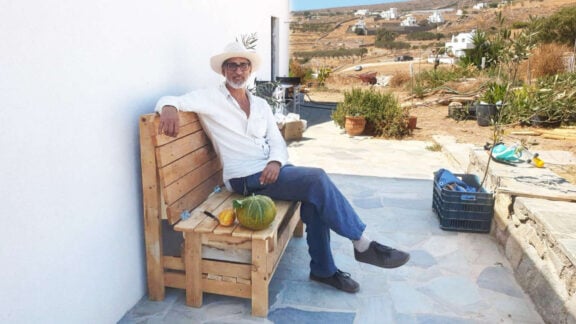The holiday season is always presented as one of joy and celebration, though this may be a shortsighted way of viewing it.
Rather, the holidays should be considered a time of year where our emotions can be heightened , be they be good, bad or ugly.
The “holiday blues” is a phenomenon that many experience during the Christmas and New Year’s period, a time that clinical psychologist Dr Anastasia Hronis said can foster negativity for some as it does positivity for others.
“While the holiday season can be the merriest time of year for some people, for others it is a sad, lonely or stressful time of year,” Dr Hronis told Neos Kosmos.
Dr Hronis, the founder of the Australian Institute for Human Wellness, has listed a number of factors that can instil feelings of immense sadness during the holidays.
Loneliness (people who are isolated or have lost loved ones) is a major cause, which is amplified by the feeling of “togetherness” that is prevalent during the festive season.
Christmas and New Year’s marks a time of reflection for many on the year that has been, which for various reasons can make both happy and sad emotions co-exist.
“Everyone experiences hardships and loss in life, and so the holiday period for many people can be a time to celebrate the positive while also grieving lost loved ones and reflecting on the harder challenges of the year,” Dr Hronis said.
“This mixed experience is very common, and it is important for people to maintain compassion for themselves, and not expect that they enjoy every moment of the holidays. ”
Another factor she raised is the increased stress caused by the holiday period, including amplified financial pressures, challenging family dynamics and an increased workload.
The academic from the University of Technology Sydney mentioned numerous effects caused by the holiday blues such as spending more time isolated or alone, turning to unhelpful behaviours like excessive alcohol, and not participating in the festivities.
Ways to battle the holiday blues
The important thing to remember, Dr Hronis said, is that there are methods for people to manage this phenomenon.
“If you are experiencing overwhelming difficult emotions and finding it hard to cope during this time, it is recommended to seek out help and plan ahead for how you might cope on difficulties days such as Christmas Day or New Years Day,” the clinical psychologist said.

She has seen an increase in the amount of people seeking out psychological services at the Australian Institute for Human Wellness in the lead up to the end of the year.
People reach out for a multitude of reasons, she said, such as wanting assistance with how they will cope during the period, how to manage challenging family dynamics during the holidays, managing grief and loneliness, or stress with the increasing cost of living.
Dr Hronis recommended that people who know which days will be most difficult, should prepare strategies in advance to manage.
“Organise, to do something that is meaningful to you, or which brings you a sense of joy on those days. Stay connected with the people you have in your life throughout the holidays, whether in person or by phone. Listen to your emotional state and do what feels right for you during this period.”
Her message to people experiencing difficulties during the holiday season was, “Help is available. Speak with a counsellor, psychologist or support service if you need additional support at this time.
“If you are part of a community group, there are organisations which can assist with providing support, and it is important for us all to remember the possible suffering of those around us at this time, and to treat others with kindness, compassion and care.”
For anyone seeking assistance, there are the following help services listed below:
Lifeline – 13 11 14
Beyond Blue – 1300 22 4636, 24 hours/7 days a week, chat online or email.
Kids Helpline – 1800 55 1800
1800RESPECT – 1800 737 732 (for domestic violence assistance)









